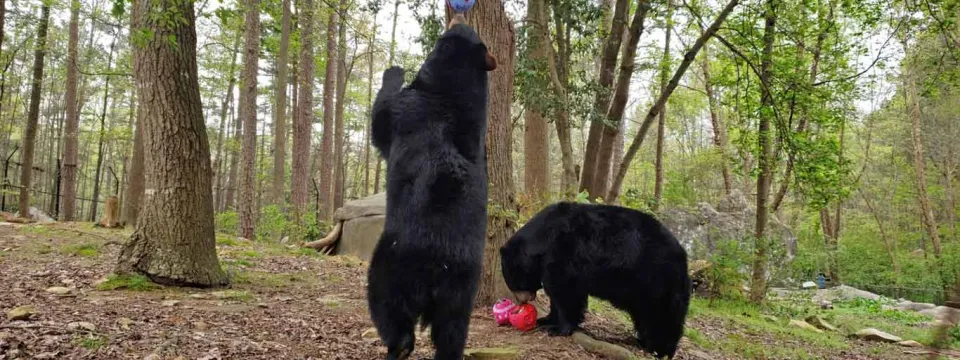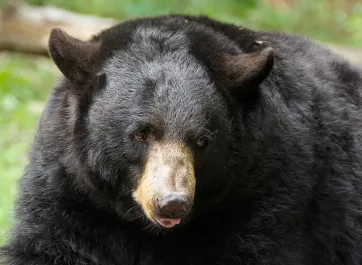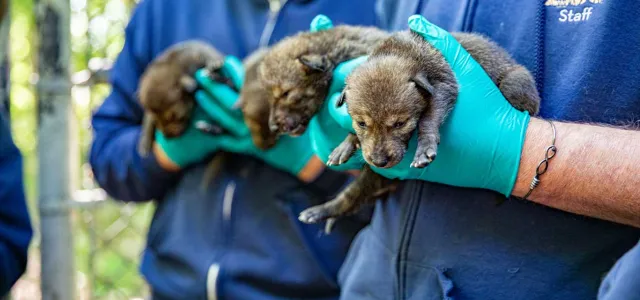Written by Alexis Rowe, Zoo Keeper, North Carolina Zoo
The North Carolina Zoo is home to two female black bears. Luna and Nova are 12-year-old sisters who came to live at the Zoo when they were less than a year old. While adult black bears are often solitary, sometimes they can be very social. Nova and Luna were raised together and have a very close bond. As long as there is enough food to go around, they get along very well with one another!
Nova is our laid-back bear; she just likes to lounge around and have a good time. Luna can be a little more rambunctious, always on the move, and full of energy.
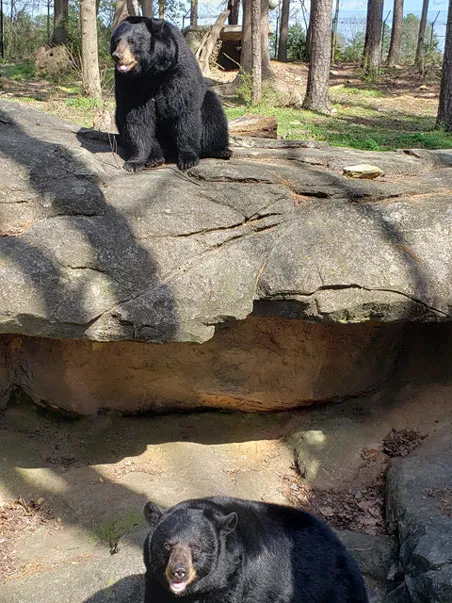
Nova and Luna
Bears are very seasonal animals, so the way we care for them adapts to the different times of the year. In late summer and fall, the girls are looking to pack on weight for the colder winter months. We will increase their diets throughout the season to simulate the foraging habits in the wild. We also provide different substrates like pine needles, leaves, and hay, which the bears will use to create cozy dens where they will spend a lot of time sleeping through the year's colder months. Their metabolism will start to slow down, and they will eat less and less through the winter. In the spring, things start to pick up again! This is the time of year when Nova and Luna are most playful. They spend a lot of their day lounging around, wrestling, and foraging for food. Every summer, they will shed out their winter coat and grow in a new one.
Black bears are opportunistic foragers, which means they eat what they can find easily. They are omnivores that eat insects, fish, animals, and mostly plant material. Nova and Luna's diet is an assortment of fruits and vegetables, peanuts, and food specifically made for omnivores. We also provide them with a broad range of enrichment food items like nuts, meat, and honey! We feed Nova and Luna multiple times a day and offer their food in many different ways, such as scattering it, burying it, or putting it into an enrichment device. Bears are super smart and have an incredible sense of smell. Luna loves a challenge and will go right for the puzzle feeders, whereas Nova prefers an easier meal!
Nova and Luna also have the choice to participate in their own healthcare. Keepers work with them on voluntarily behaviors such as standing on a scale, leaning in for an injection, or opening their mouth so we can see their teeth. This is all done using positive reinforcement training and helps make caring for them safer and more positive!
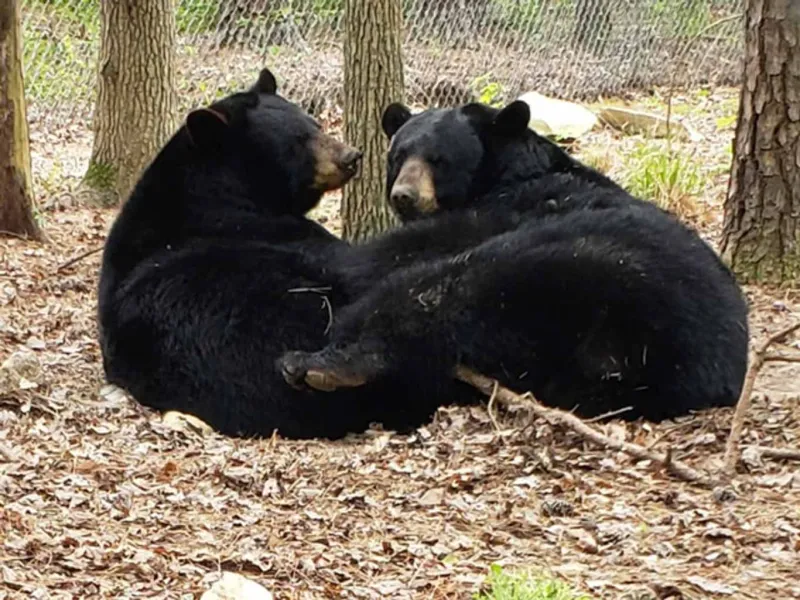
Nova and Luna snuggling up
Black bears are found all across the country, so it is essential to learn about them and live successfully among them! While many people are misled to believe bears are very ferocious, they are not mean or malicious animals. A wild black bear's first response is to get away from a human. Keeping a respectful distance and understanding their behavior is critical when encountering a black bear in the wild. Use preventative measures when hiking, such as hiking in a group or make noise to prevent an encounter. If you have black bears living near your home, avoid anything that may draw them near, such as bird feeders, trash, and pet food that are left outdoors.
We hope you will stop by to say "Hi!" to Luna and Nova, our beautiful black bears!

